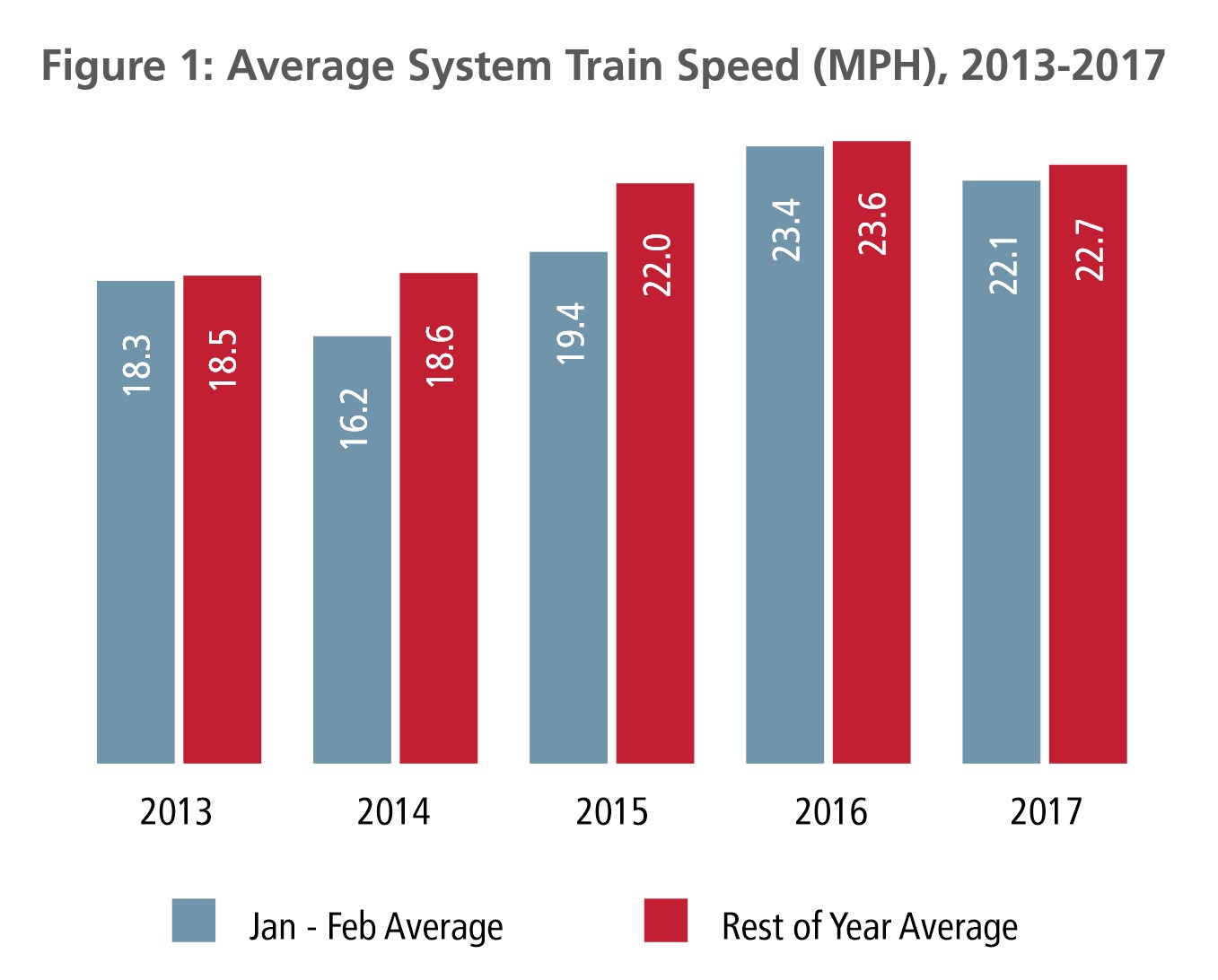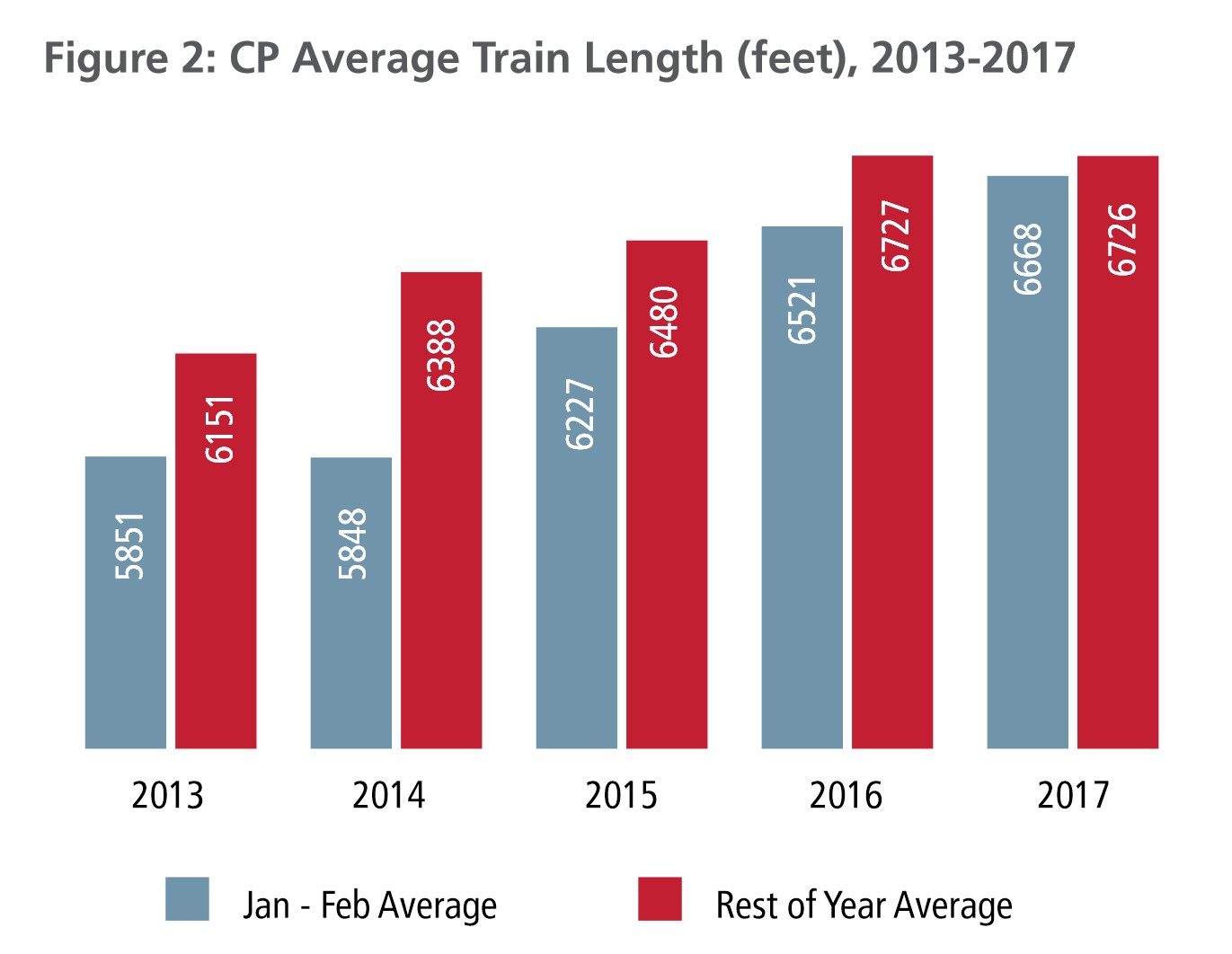Growing Number of Rail AccidentsThe number of rail accidents in Canada increased from 1,091 to 1,170 in 2017, higher than the five-year average of 1035, according to the Transportation Safety Board. Accidents involving dangerous goods increased nine per cent to 125 from 115, with six resulting in the release of dangerous materials.[1] This is of great concern to the rail workers and to public safety. But to the financial oligarchy it is another story. Responding to a preliminary report from the Transportation Safety Board, RBC Capital Markets analyst wrote in a research report, "All said, we believe that the statistics are encouraging in many important areas, thereby suggesting that the railroads are operating at a high level of safety." CP claims that it takes appropriate measures to ensure safety during extreme cold, but its own statistics reveal that this is a fraudulent claim. CP's White Paper, Railroading in the Canadian Winter states that cold weather speeds up the rate of air leakage from the air brake system, and that speed should be reduced in frigid temperatures -- by at least 16 km/h below -25 C and by at least 32 km/h at -35 C. The report reveals that both train length and speed rose significantly in just four years from 2013-2017.[2] Train lengths were higher in January and February 2017 than the annual average for the years 2013-2016. Average speeds in January and February 2016 and 2017 were higher than the rest of the year averages for 2013- 2015. CP claims that the significant increase in the length and speed of trains over the years 2013-2017 is the result of "significant capital investments, better winter planning, and other operational changes." The growing number of accidents, and the alarming number of derailments in a very short time tell a very different story.
Notes1. White Paper: Railroading in the Canadian Winter. |




